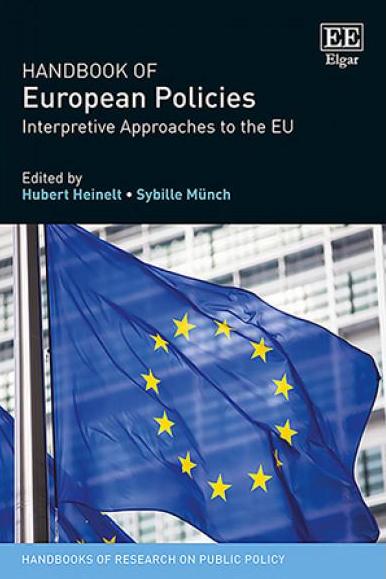Thank you for your message. The IPPA team will get back to you shortly. You first need to login here.

Handbook of European Policies (2019)
(Publisher : Edward Elgard Publishing)
Author(s) : Hubert Heinelt and Sybille Münch
This definitive Handbook addresses the current lack of research into European policymaking and development using an interpretive perspective. Questioning areas that mainstream approaches tend to neglect, contributors target the ways in which ideas, arguments, and discourses shape policies in the institutional context of the EU.




